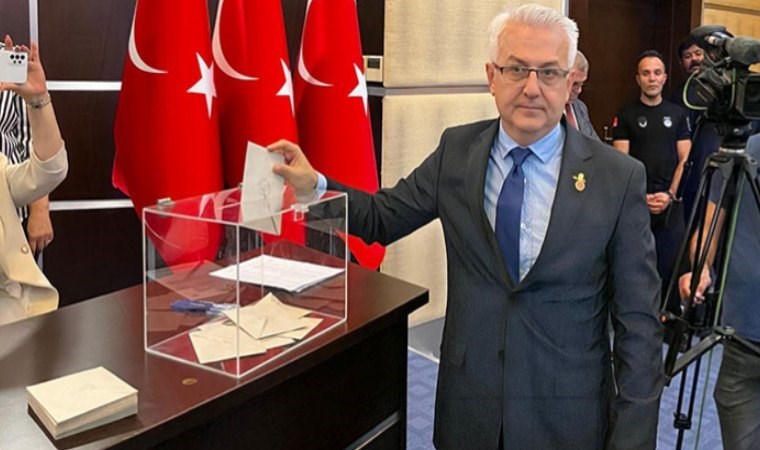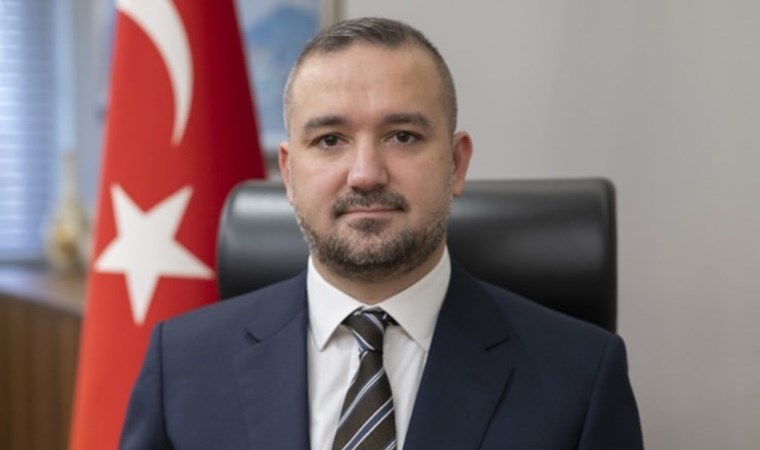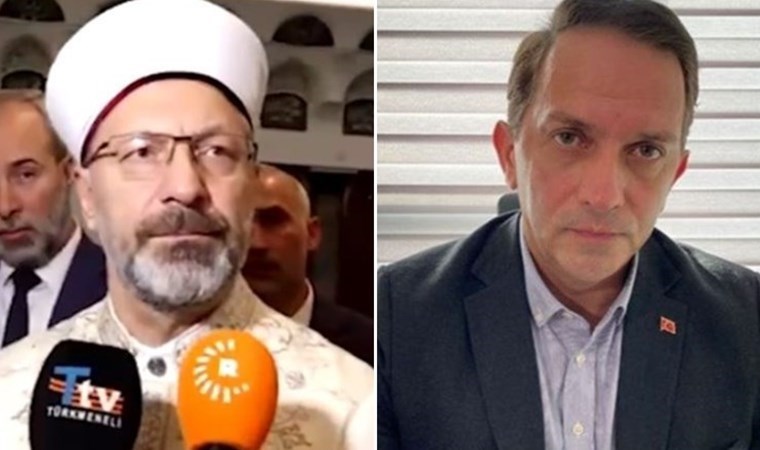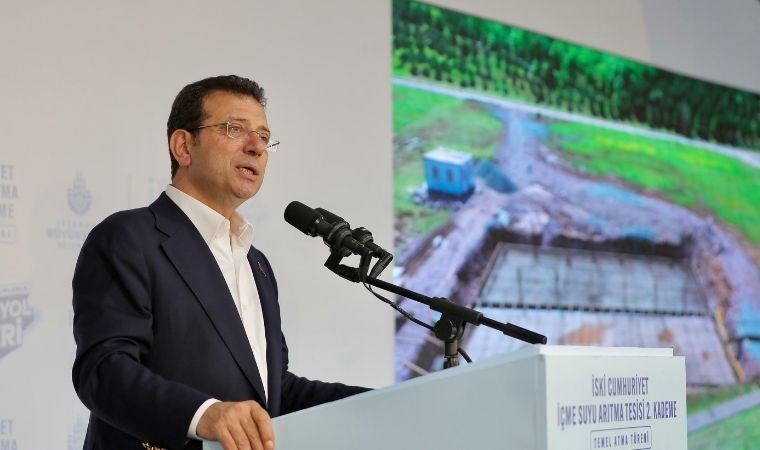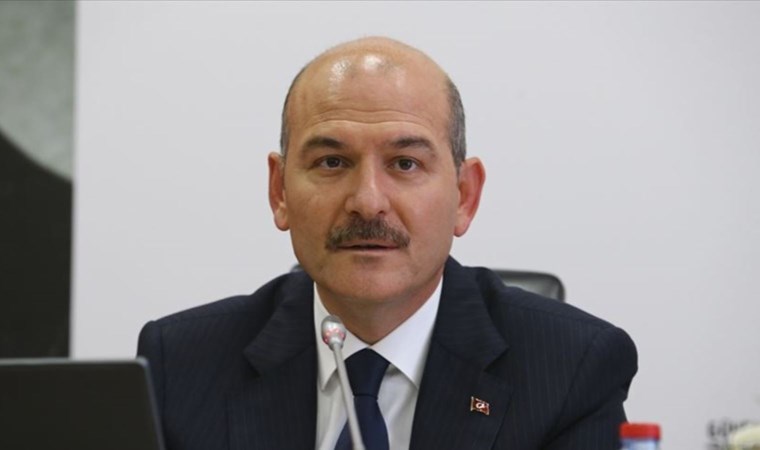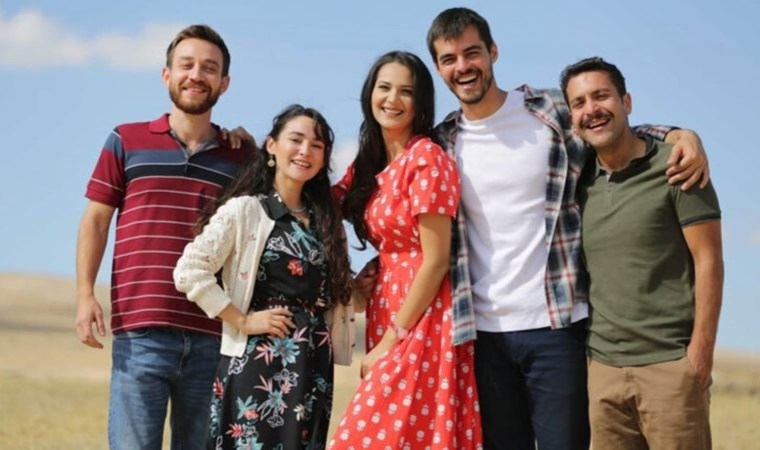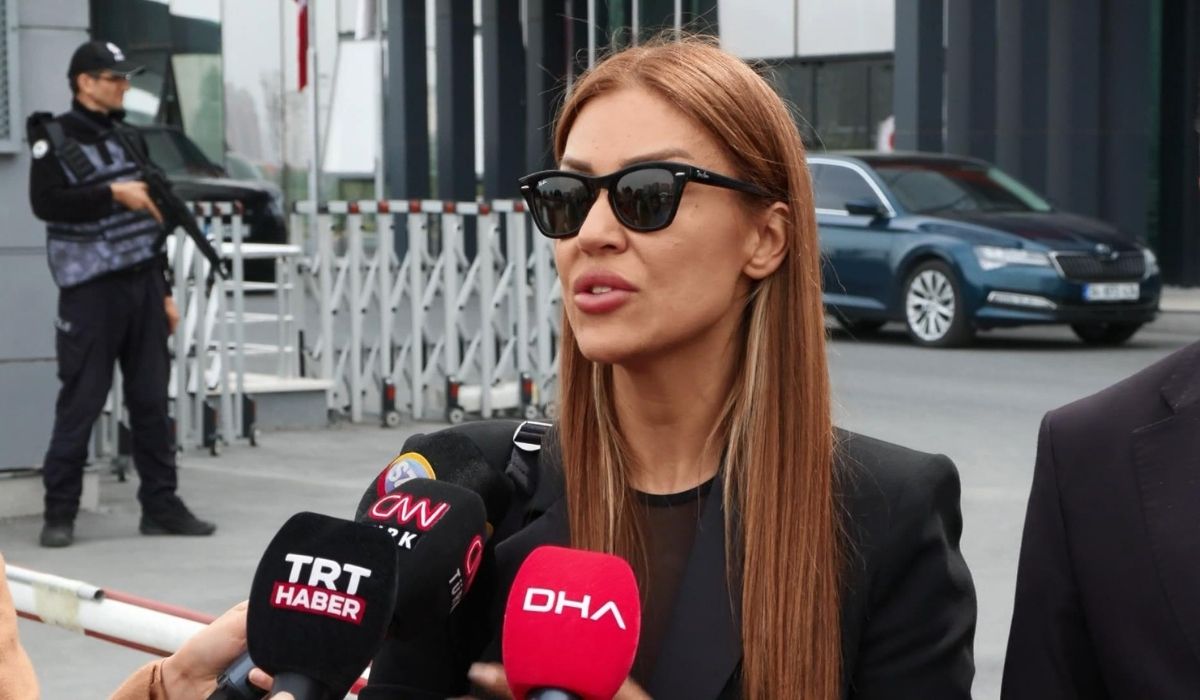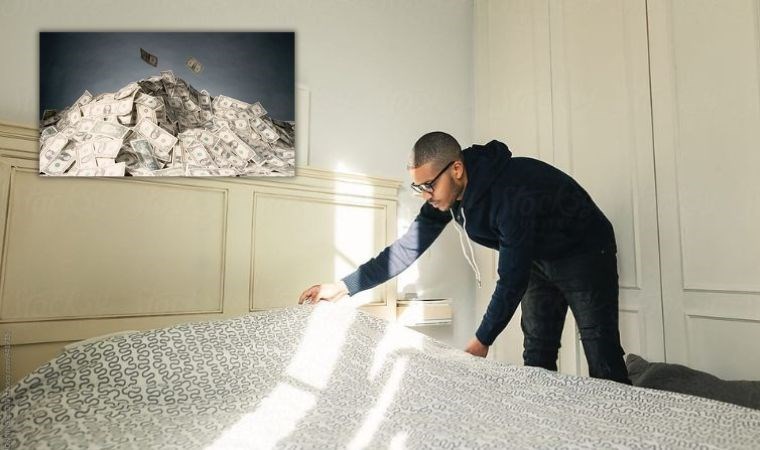Crying out for justice in Silivri
The Press Council Supreme Board held its first meeting of the year on 10 January Working Journalists Day at Silivri so as to support the detained journalists in Silivri Prison and other prisons.
In the speeches made at the meeting, journalists’ problems were raised and there was a wish for the detained journalists to be enabled to continue their professions through their immediate release.
The Press Council Supreme Board held its first meeting of the year on 10 January Working Journalists Day at Silivri so as to support the detained journalists. The meeting was also attended by Cumhuriyet Foundation members Musa Kart and Önder Çelik and our accounting employee Emre İper, who are being prosecuted in our newspaper’s trial, along with Adalet Dinamit, wife of our detained Executive Board Chair Akın Atalay, Attorney-at-Law. Dinamit, noting that the Constitutional Court will pass a ruling on the Cumhuriyet trial today, said, “This ruling is very important in that it will constitute a precedent for all journalists whose rights have suffered violation, and not just for the Cumhuriyet Newspaper detainees. This test is not just the Constitutional Court’s, it is Turkey’s test.” Under the hashtag “we cannot celebrate,” journalists also demanded freedom for their detained colleagues, including Ahmet Şık.
“A day of journalists who cannot work”
The meeting at Silivri Municipality Yaşar Kemal Culture Centre was attended by Press Council Chair Pınar Türenç, Second Chair Murat Önok, Silivri Mayor Özcan Işıklar, Press Council Supreme Board members including Hüsamettin Cindoruk, Tufan Türenç, Murat Önok, Melih Berk, Turgay Noyan,Yalçın Büyükdağlı, Okşan Atasoy, Başar Yaltı and Muzaffer Baca, Press Council General Secretary Mustafa Eşmen along with detained journalists’ relatives.
Press Council Chair Pınar Türenç, addressing the opening of the meeting, said, “Journalists on January tenth 57 years ago gained vital and social rights with the passing onto the statute book of Law number 212. We have begun to lose these rights over the years. But, at this point we have reached, 10 January Working Journalists Day is as far as today goes a day of journalists who cannot work. A day of journalists who are not being put to work. A day of journalists who are imprisoned. A day of thousands, tens of thousands of journalists who remain unemployed. A day on which union organisation is destroyed. A day on which families wait in hunger at home. A day on which children unable to see their fathers longingly await their departure from prison.” Türenç, stating that 10 January had fully lost its meaning especially in the past ten years, continued, “At the point we have reached today, some 145 journalists are held captive in prisons in Turkey. I say 145 bearing in mind that this number may increase or fall every day. The number of journalists against whom trials have been filed increases each day. Intimidation continues to be applied. Over and above this, what is important for us is the self-censorship that journalists apply to themselves. The most important point in the quest for rights that we are pursuing today is standing up for our pens. When we stand up for our pens, we stand up for democracy. To speak of democracy and stand up for one of its most important components, freedom of thought, is our most vital right. This is what we are seeking. The importance of the meeting on 10 January in Silivri derives from the large number of journalists in that horrific Silivri prison right next to us who await the day on which they will become free.”
Let the trial be held in Istanbul
Türenç, also mentioning the trial against our newspaper’s columnists and managers, said, “The court in an incomprehensible decision at the last hearing moved the next hearing to the court in Silivri Compound - the hearing scheduled for 9 March 2018 - and we do not accept this, either, because it is essential that the principal of openness, an indispensable component of the right to a fair trial, find practical implementation, all interested parties be able to monitor the hearing and be afforded this opportunity. We call on the hearing to be held in Istanbul and not in an out-of-the-way place. With reference to the Cumhuriyet trial, we want all the other penal proceedings involving journalists to be brought to an immediate conclusion.”
Cindoruk: It amounts to torture
Former Parliamentary Speaker and Press Council Supreme Board member, Hüsamettin Cindoruk, in turn said, “There are complaints nowadays over the lengthy time in detention of our colleagues who have been held in jail for a long time. I concur with these complaints, but this is not the full extent of the matter. What is today being done to these colleagues of ours is judicial torture inflicted on these intellectuals. It is very wrong for us to get used to this and we cannot do so. If we get used to this, we will enhance the difficulties in which our democracy finds itself. Nobody trusts our democracy. We must, all together, all of us including the ruling party and the president, come to an understanding on freedom of thought and expression and international values.” Cindoruk, saying that, even under military administrations, freedom of expression and thought had never come under such glaring attack, said, “The situation we find ourselves in is an attack on the freedom of thought and expression as much as it is judicial torture. We note with sadness that the authorities to which we make application to prevent this attack has ceased to be the courts or the Constitutional Court in our country.”
Adalet Dinamit: The Constitutional Court’s and Turkey’s test
Wife of our Executive Board Chair Akın Atalay, Adalet Dinamit, recalling that her husband and our Editor-in-Chief Murat Sabuncu had been detained for 437 days, as had our reporter Ahmet Şık for 376 days, said the following: “The Cumhuriyet trial is important in terms of clearly showing that the principle of legality with respect to crime and punishment has been breached. Journalists and journalism are being prosecuted in this trial. The questions asked are about columns and news reports. The media has a duty to criticise and question parties and people in government and inform the people of events. The defendants in this trial are being prosecuted for their ideas and for having conducted journalism, not for any of their actions. The Cumhuriyet trial hangs over journalism like a threat to press freedom. Journalistic activity cannot be seen as the offence of ‘engaging in activity on behalf of a terrorist organisation.’ Journalistic activity cannot be prevented. At this very point, eyes have turned to the most senior judicial authority of the Constitutional Court with a view to the entrenching of democracy and the supremacy of the law in Turkey. Tomorrow (today), the pilot case that has been selected from the Cumhuriyet trial will be examined from a rights violation viewpoint. Tomorrow, that is Thursday 11 January, is an important date as to how well the test of democracy will be taken. This ruling is very important in that it will constitute a precedent for all journalists whose rights have suffered violation, and not just for the Cumhuriyet Newspaper detainees. It is important in terms of entrenching the supremacy of the law, it is important for press freedom, it is important in terms of the reasons for the Constitutional Court’s existence. This test is not just the Constitutional Court’s test, it is Turkey’s test. We, the subjects of this trial, will see first-hand how well this test is taken. I wish to end my words with my husband Akın Atalay’s comment during the hearing, ‘If I came a hundred times into this world, I would prefer to be on the defence in this trial every time, because lining up with the values of justice, freedom and democracy is an honour. My conscience is clear and I am at peace. Have no worries – it is not those who appear strong today but those who are in the right who will prevail’.”
Musa Kart: Hard to describe feelings
Our cartoonist Musa Kart, who was released last July in our newspaper’s trial, stating that he had come to Silivri for the first time since being freed five months ago, said, “Quite truthfully, I have difficulty describing my feelings. Initially, I have an objection to my dear brothers Akın Atalay, Ahmet Şık and Murat Sabuncu having been kept in jail in an unjust and lawless manner for more than one year. But, my objection, at the same time, is to the incarceration of politicians, academics and journalists simply because they are in the opposition. Look, aircraft spare parts are now manufactured by 3D, that is three-dimensional, printing in the world. Techniques are used for squeezing into shape here, too, but this is only applied to opposition people, unfortunately. Yes, days, months and years have been stolen from our lives, but our hope of living in a freer country remains in place. They have been unable to steal it.”
Önder Çelik: We are symbolic
For his part, Önder Çelik, saying that he went along with Adalet Dinamit and Musa Kart’s thoughts, commented, “We are actually symbolic names. The lawlessness and injustices that are conducted and the flaws and people in the judicial system are each a symbol. The names may signify nothing but they have significance as a whole.”
Emre İper: Getting out is harder
Our employee Emre İper, who was freed recently, said the following: “It is hard to go in and getting out is harder. Contrary to the meaning of this day, there are journalists who are not put to work and are facing oppression. There are also journalists who have been murdered, such as Metin Göktepe, the anniversary of whose death we commemorated two days ago, and investigative journalists Uğur Mumcu and Ahmet Taner Kışlalı. There are journalists on the inside undergoing captivity such as Ahmet Şık, Murat Sabuncu and Akın Atalay, who are behind bars for writing the truth. To us falls the task of commemorating the anniversaries of their deaths and counting their days in captivity. And of hopefully awaiting the end of the injustices.”
Özcan Işıklar: We experience the ensuing woe
Silivri Mayor Özcan Işıklar commented, “This, unfortunately, is what Silivri is remembered for. But I believe, when they say, ‘The ball cannot bounce without hitting the ground,’ that Silivri will also be remembered as the place the ball hit the ground. We have been experiencing the trouble and woe ensuing from this here for nine years. Silivri may well be remembered on each occasion as a place where unfairness and injustice prevailed as of the day trials commenced. But, we will continue to do battle with this notion.” At the conclusion of the meeting, Işıklar presented flowers to Press Council Chair Türenç as the representative of all journalists.

En Çok Okunan Haberler
-
 Kepez Belediyesi'nde yeni başkan belli oldu
Kepez Belediyesi'nde yeni başkan belli oldu
-
 ‘Haddini bilsin, tepemin tasını attırmasın’
‘Haddini bilsin, tepemin tasını attırmasın’
-
 Merkez Bankası faiz kararını açıkladı
Merkez Bankası faiz kararını açıkladı
-
 AKP'li isimden istifa çağrısı!
AKP'li isimden istifa çağrısı!
-
 CHP’nin yükselişi sürüyor
CHP’nin yükselişi sürüyor
-
 Dilan ve Engin Polat çiftinin yargılandığı davada karar
Dilan ve Engin Polat çiftinin yargılandığı davada karar
-
 'Kapıdan içeri sokmayın'
'Kapıdan içeri sokmayın'
-
 Son mesai saatinde 4.5 milyonluk fatura kesilmiş
Son mesai saatinde 4.5 milyonluk fatura kesilmiş
-
 Soylu geri mi dönüyor?
Soylu geri mi dönüyor?
-
 Evlilikte şanslı olan 4 burç!
Evlilikte şanslı olan 4 burç!
